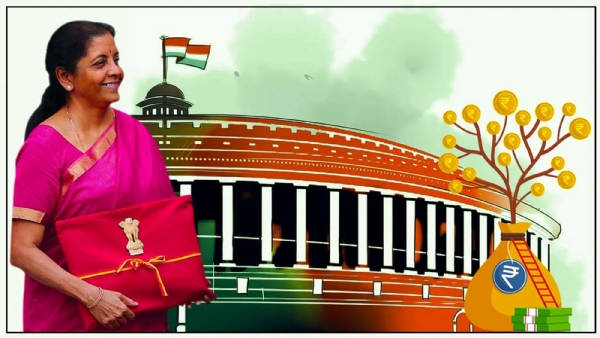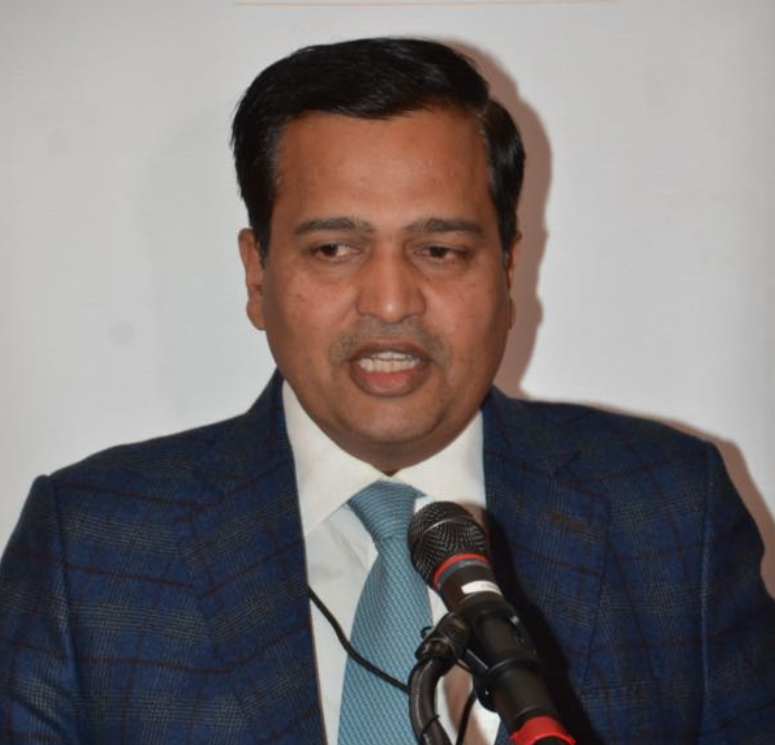Strong Budget Presented Even In Corona Crisis
Sitaraman"s fourth budget has laid the foundation for a path to economy becoming developed economy by the year 2047. It has a "long term vision" to achieve a balance for all sectors and people.
Total Views |
Corona pandemic has hit the country's economy hard. Given the stress on the manufacturing sector, agriculture and employment, it is natural for any elected government to be under pressure to provide popular relief to people. In such a situation, it takes political courage to come up with a comprehensive, balanced budget. The same maturity has been shown by the NDA government led by Prime Minister Narendra Modi in this year's budget. The budget was expected to be packed with popular announcements in the run-up to the forthcoming Assembly elections in five states. However, it is certainly commendable that Finance Minister Nirmala Sitharaman has presented a budget with an eye on growth. A budget that will drive growth and the digital economy in long term.

It would not be out of place to say that Sitaraman's fourth budget has laid the foundation for a path to economy becoming developed economy by the year 2047. It is necessary for the political leadership in government to try to keep all the elements happy. However, it is equally important to have a 'long term vision' while doing this. This balance is achieved by the budget. Lockdown, sanctions have hit the economy hard in the last two years and this has put a strain on the government's coffers. On the other hand, many countries of the world have increased their income by implementing 'corona tax' or super rich tax. In India too, this could have been done by raising taxes. But the Prime Minister had given clear instructions not to burden the people in times of crisis, Sitharaman herself said in a post-budget press conference. This shows that Government has been sensitive towards a fact that common tax payer is not burden more.
The budget combines both populism and foresight. Following the basic principles of economics, the government has increased capital expenditure by 35% to boost the economy. An industry-friendly environment is being created to promote domestic industry and entrepreneurship. The priority given to the infrastructure sector indicates this focus clearly. The capital expenditure for road construction has been increased from Rs 1 lakh 30 thousand crore to Rs 1 lakh 90 thousand crore. The capital expenditure for the railway department has also been increased to record Rs 2.5 lakh crore. This will help in the rapid transformation of the infrastructure sector.
To improve digital infrastructure, the government has decided to lay optical fibre network in rural areas within this year. This is important in the context that India has seen its digital economy grown exponentially since the COVID crisis. With number of mobile users in the country crossing 130 crore mark, India is at the forefront of mobile banking in the world. With this in mind, it was necessary to focus on the data economy. The budget has given the right direction to this. There is no doubt that this process will gain momentum after the auction of 5G spectrum this year.
The biggest challenge for the government is to reduce the cost of domestic transportation, i.e. logistical costs. The logistical cost in the world is 8 to 9 percent, while in India it is 14 percent. High logistical costs puts stress on the competitiveness of our businesses, small and medium enterprises in particular. Against this backdrop, measures to reduce logistics costs with multimodal approach shall be game changer for the economy. Four MMLP and 100 cargo centres along the railway lines along with National Ropeway policy for hill states is step in right direction.
Numerous provisions made for farmers are another feature of the budget. Due to the minimum guaranteed price, Rs 2 lakh 35 thousand crore will be directly deposited in the bank accounts of the farmers. The concept of Kisan Drone shall bring a necessary new technology to modernise agriculture.
The government's revenue is estimated at Rs 23 lakh crore and expenditure at around Rs 40 lakh crore. However, despite this, the government has made efforts to extend the benefits to every elements. Making popular announcements is easy, but implementing them is challenging. The track record of implementation of the announcements made by the Modi government in the last seven years is outstanding. The schemes announced by the Finance Minister are of long-term benefit. The government is trying to control inflation and increase employment while increasing capital expenditure. Special attention has been paid to the federal system from the budget. The states will now be given an additional credit line of Rs 1 lakh crore by the Center States have been given a concession to repay this interest free loan in 50 years. In terms of taxes, more than a certain share will be given to the states. The Center expects the states to spend the money on long term capital expenditure. If we look at the Union Budget as a whole, it has to be said that the Finance Minister has linked 'soft power' and 'hard infrastructure'.


